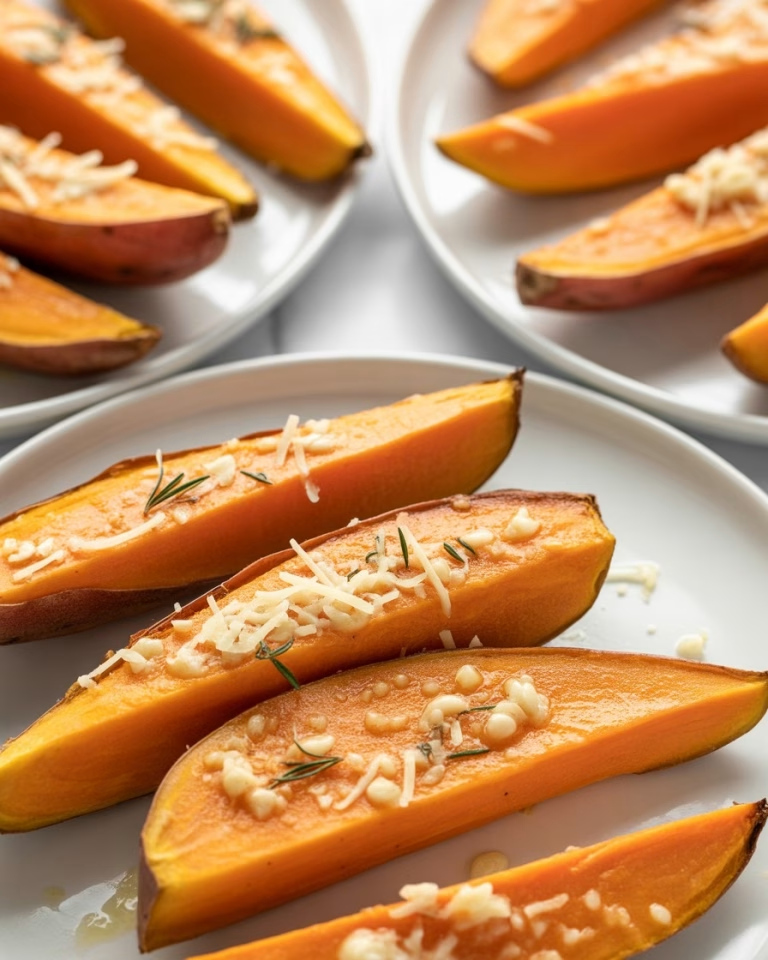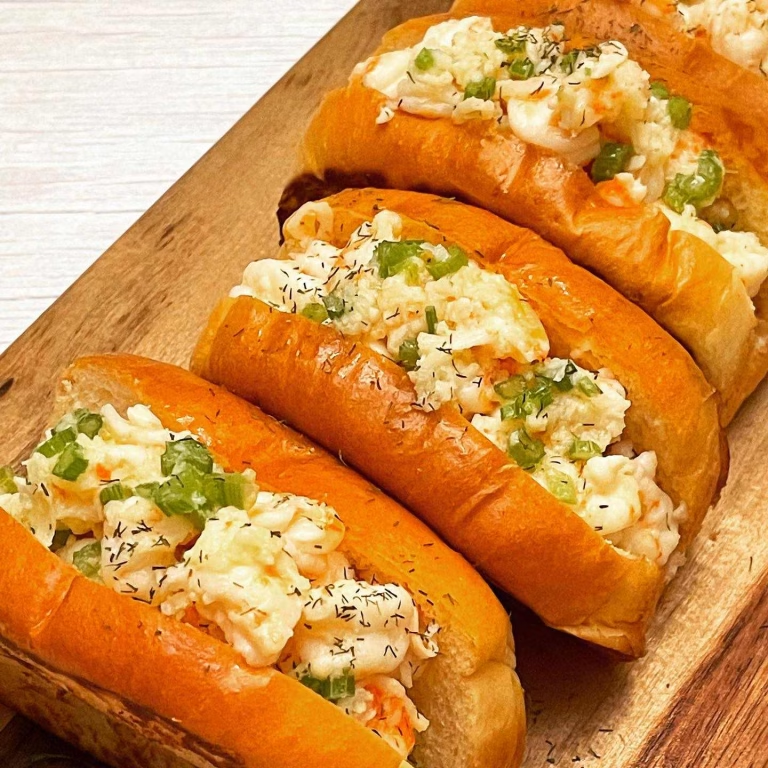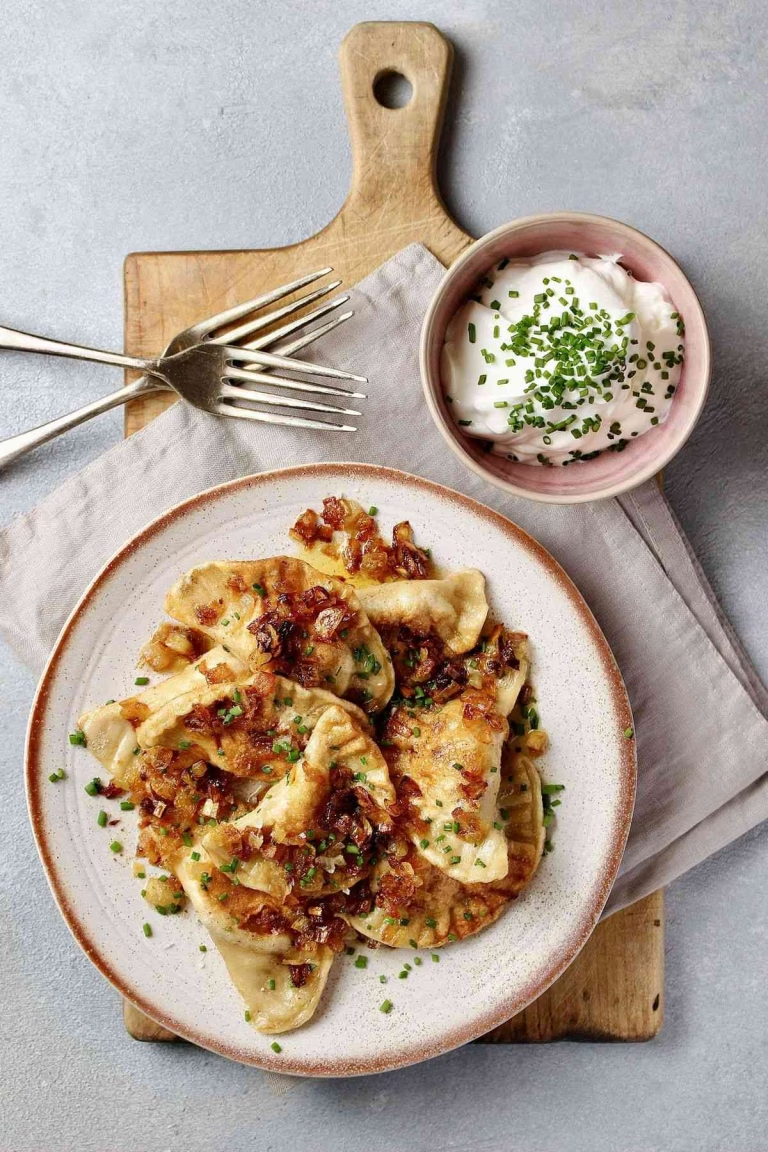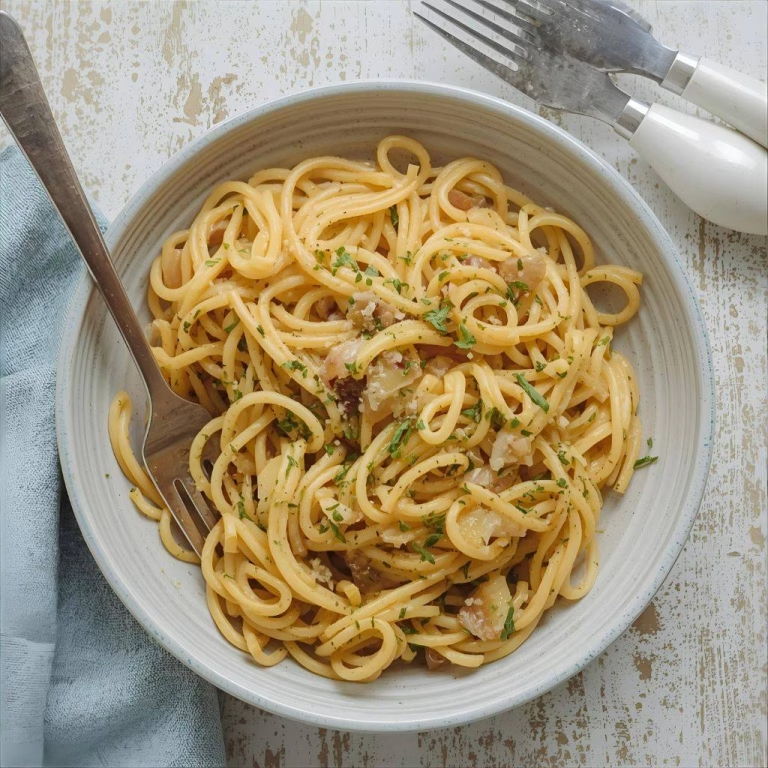Butter Lobster Risotto Recipe: Creamy, Rich & Elegant Dish
The first time I made Butter Lobster Risotto, I honestly felt like a chef in my own kitchen. The creamy rice, the buttery lobster, and the delicate flavors came together so beautifully that I couldn’t believe I pulled it off myself.
It felt fancy enough for a restaurant, but still cozy enough to enjoy at home. Sure, it takes some patience, but once you take that first bite, you’ll know it was worth every stir.
I love making this for a special night in, and it always feels like a little celebration on a plate.
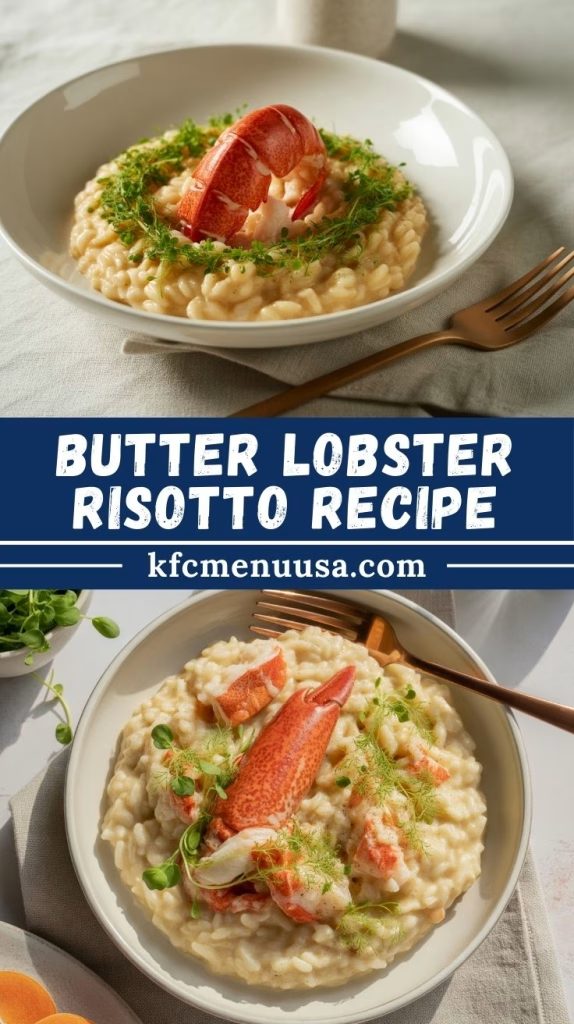
Ingredients You’ll Need
Each ingredient plays a role in making the risotto rich, creamy, and indulgent.
- 2 lobster tails (8–10 oz each): Fresh lobster is best for sweetness and tenderness. If using frozen, thaw fully before cooking.
- 8 tablespoons unsalted butter: Used for poaching the lobster and finishing the risotto. Don’t skimp here—the butter is what makes this dish luxurious.
- 2 medium shallots, finely diced: Adds a sweet, delicate flavor that balances the richness.
- 1 cup Arborio rice: Short-grain rice that releases starch, giving the risotto its creamy texture.
- 1/4 cup cognac or dry white wine: Lifts the flavors and adds depth. You can swap with extra stock if avoiding alcohol.
- 2 cups low-sodium chicken stock: Creates a savory base for cooking the rice.
- 1 cup lobster or clam stock: Enhances the seafood flavor. Homemade is amazing, but store-bought works too.
- 1/3 cup Parmesan or Pecorino Romano, freshly grated: Freshly grated cheese melts better than packaged, giving a smooth finish.
- 2 garlic cloves, minced: Infuses both the lobster and risotto with aromatic depth.
- 1/2 teaspoon paprika: Adds gentle smokiness and warmth.
- Fresh spring onions or chives, chopped: For a bright, colorful garnish that balances richness.
Note: Serves 4 as a main course.
Delicious Variations to Try
This risotto can be customized in so many ways.
- Swap butter with olive oil for a lighter, dairy-free version.
- Replace lobster with shrimp, scallops, or crab for variety.
- Make it vegetarian by using vegetable stock and adding sautéed mushrooms.
- Skip the alcohol and use extra stock for the same creaminess without wine or cognac.
Cooking Time
Here’s how long this recipe takes from start to finish:
- Prep Time: 1 hour
- Cooking Time: 1 hour
- Total Time: 2 hours
Equipment You’ll Need
Having the right tools makes the process much smoother.
- Kitchen shears: To cut open lobster shells and remove the meat.
- Saucepan: For simmering stock and poaching lobster.
- Non-stick pan: Perfect for cooking the risotto evenly without sticking.
- Silicone spatula: Gentle on rice grains while stirring for creaminess.
How to Make Butter Lobster Risotto?
This recipe takes a little patience, but the result is pure comfort and luxury. Let’s go step by step.
Prepare the Lobster
I start by boiling or steaming the lobster tails just until the shells turn bright red. Then, I shock them in ice water so the meat doesn’t overcook. Using kitchen shears makes it easy to remove the meat cleanly. I always save the shells for stock, and I poach the lobster in melted butter with garlic until just tender.
Make a Flavorful Stock
The shells never go to waste. I simmer them with chicken stock, garlic, and paprika for about 20 minutes. This step makes a broth that’s rich with lobster flavor. Straining it and keeping it warm on the stove ensures it’s ready for the risotto.
Sauté the Aromatics
Next, I melt some of that garlic butter in a pan and sauté shallots until they’re soft and fragrant. This is the moment the risotto starts to build its flavor foundation.
Toast the Rice and Deglaze
I add Arborio rice to the pan, stirring until each grain is glossy and lightly toasted. Then I pour in cognac or wine, letting it bubble away while infusing the rice with an extra layer of depth.
Cook the Risotto
This is the part where patience pays off. I add the warm stock one ladle at a time, stirring until it absorbs before adding more. Slowly, the rice releases starch and turns creamy. It takes time, but I actually enjoy the rhythm of stirring—it feels calming.
Finish with Cheese and Lobster
When the rice is perfectly creamy, I stir in fresh Parmesan and a knob of butter. Finally, I fold in the butter-poached lobster pieces so they warm through without overcooking.
Garnish and Serve
I love plating risotto in wide bowls, topping it with lobster pieces, and finishing with a drizzle of browned butter. A sprinkle of chives makes the dish look as good as it tastes.
Additional Tips for Making this Recipe Better
From my own experience, here are a few tricks that make this risotto even more special:
- Always keep your stock warm—cold stock stops the cooking.
- Stir patiently and consistently; it’s the secret to creamy risotto.
- Poach lobster gently. I learned the hard way that overcooked lobster turns rubbery.
- Grate your cheese fresh. It melts beautifully compared to pre-shredded.
- Don’t skip resting the risotto for a minute before serving—it helps flavors settle.
How to Serve Butter Lobster Risotto?
This dish deserves a little presentation magic. Serve it in shallow, wide bowls for that restaurant look. Place the lobster pieces right on top, drizzle with brown butter, and scatter fresh chives over the top. I love pairing it with roasted asparagus or a crisp green salad to cut through the richness.
Nutritional Information
Here’s the approximate breakdown per serving:
- Calories: 507
- Protein: 29g
- Carbohydrates: 46g
- Fat: 26g
Make Ahead and Storage
Make Ahead
You can cook the risotto base a day before, but leave out the lobster. When ready to serve, reheat with a splash of stock and add the lobster fresh.
Storage Tips
Leftovers can be refrigerated in an airtight container for up to 2 days. To reheat, I always add a little stock on the stovetop to bring back the creaminess. Freezing isn’t a good option, as the lobster’s texture won’t hold up.
Why You’ll Love This Recipe?
This dish is more than just dinner—it’s a special experience. Here’s why I love it:
- It feels elegant but is totally doable at home.
- The buttery lobster and creamy rice make every bite indulgent.
- You can adapt it with different seafood or even vegetarian options.
- It’s perfect for impressing guests or celebrating a special night.
- Leftover risotto can be repurposed into arancini or brunch dishes.
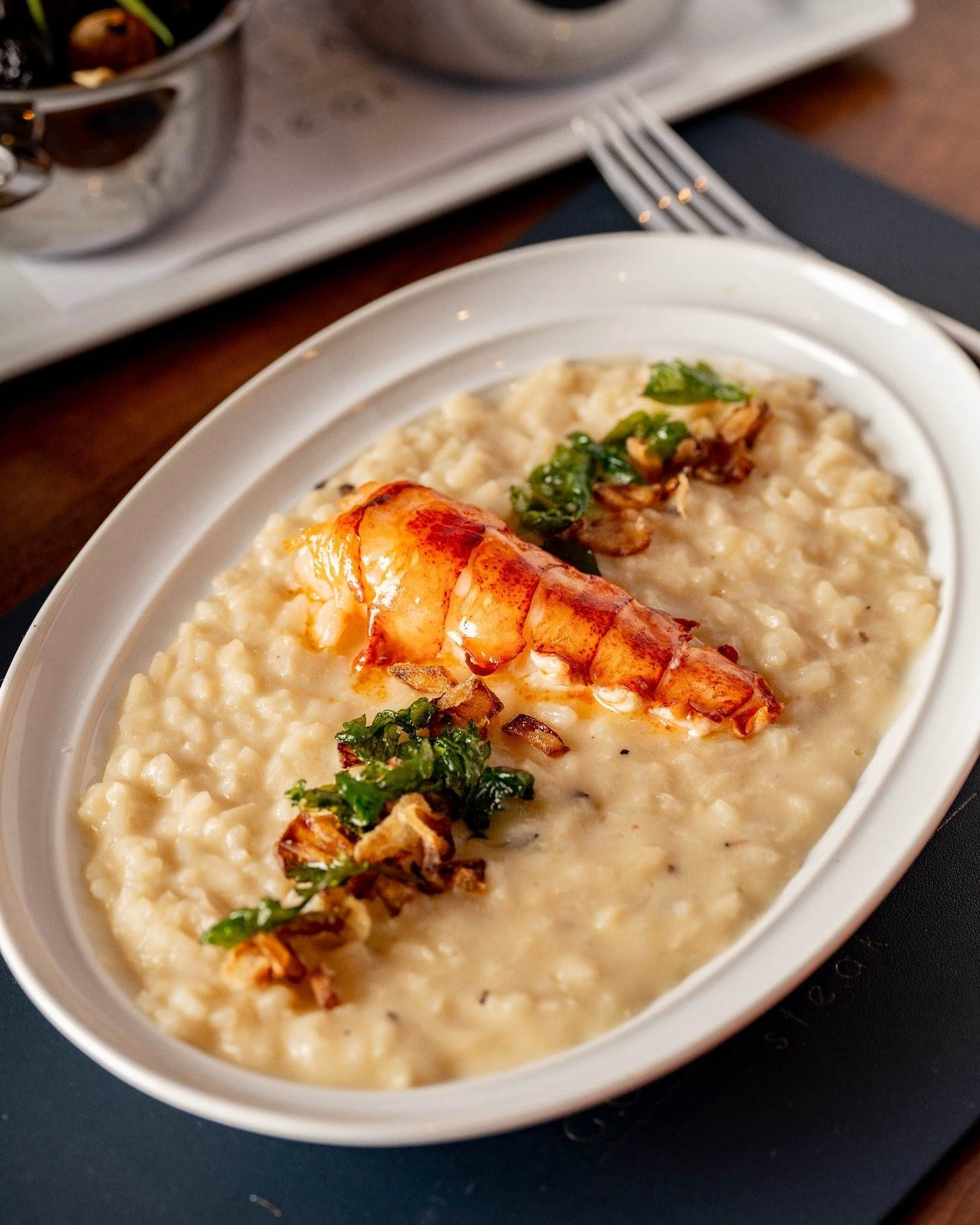
Butter Lobster Risotto Recipe
Ingredients
Method
- I start by boiling or steaming the lobster tails just until the shells turn bright red. Then, I shock them in ice water so the meat doesn’t overcook. Using kitchen shears makes it easy to remove the meat cleanly. I always save the shells for stock, and I poach the lobster in melted butter with garlic until just tender.
- The shells never go to waste. I simmer them with chicken stock, garlic, and paprika for about 20 minutes. This step makes a broth that’s rich with lobster flavor. Straining it and keeping it warm on the stove ensures it’s ready for the risotto.
- Next, I melt some of that garlic butter in a pan and sauté shallots until they’re soft and fragrant. This is the moment the risotto starts to build its flavor foundation.
- I add Arborio rice to the pan, stirring until each grain is glossy and lightly toasted. Then I pour in cognac or wine, letting it bubble away while infusing the rice with an extra layer of depth.
- This is the part where patience pays off. I add the warm stock one ladle at a time, stirring until it absorbs before adding more. Slowly, the rice releases starch and turns creamy. It takes time, but I actually enjoy the rhythm of stirring—it feels calming.
- When the rice is perfectly creamy, I stir in fresh Parmesan and a knob of butter. Finally, I fold in the butter-poached lobster pieces so they warm through without overcooking.
- I love plating risotto in wide bowls, topping it with lobster pieces, and finishing with a drizzle of browned butter. A sprinkle of chives makes the dish look as good as it tastes.
Notes
- Always keep your stock warm—cold stock stops the cooking.
- Stir patiently and consistently; it’s the secret to creamy risotto.
- Poach lobster gently. I learned the hard way that overcooked lobster turns rubbery.
- Grate your cheese fresh. It melts beautifully compared to pre-shredded.
- Don’t skip resting the risotto for a minute before serving—it helps flavors settle.



